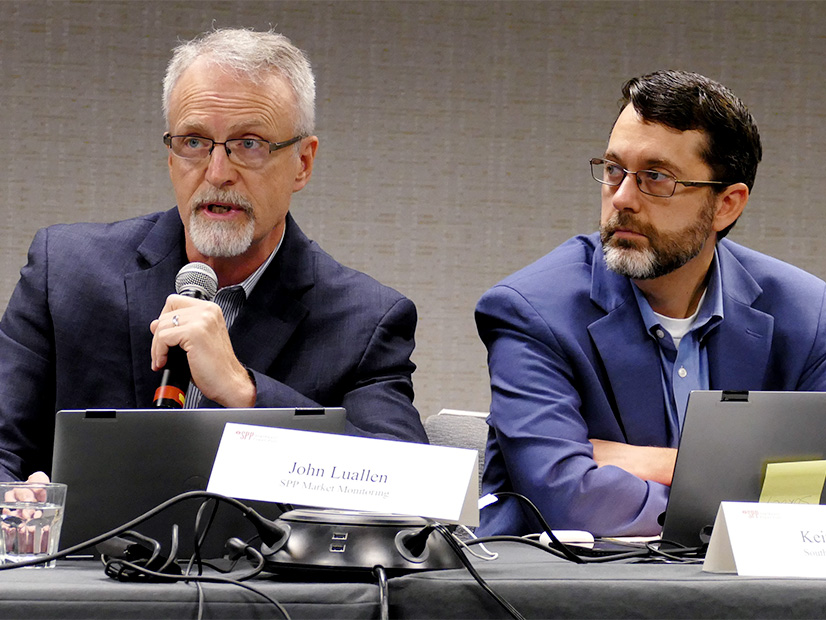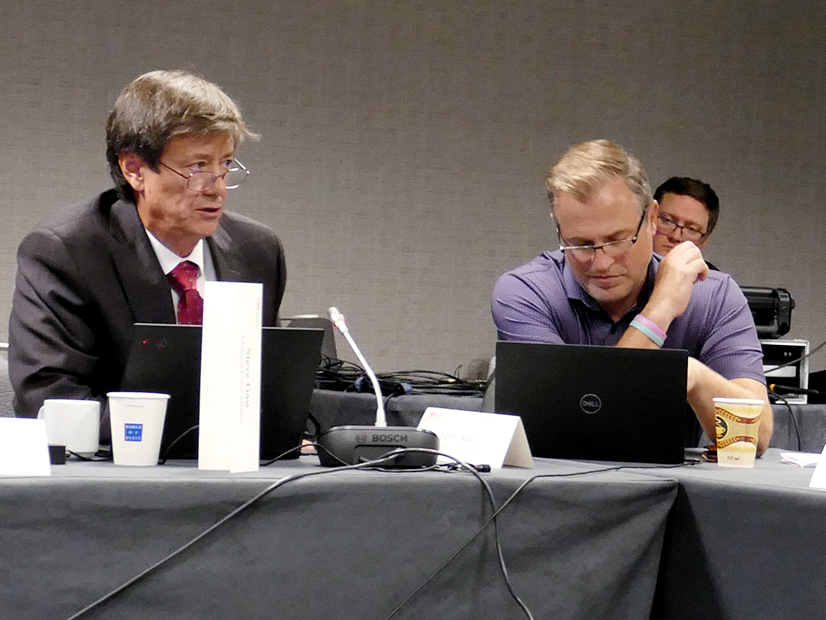
SPP stakeholders asked two working groups to consider compromise language on a pair of tariff revisions related to resource adequacy policies.
DFW AIRPORT, Texas — SPP stakeholders last week asked two working groups to consider compromise language on a pair of tariff revisions related to resource adequacy policies.
The Resource and Energy Adequacy Leadership (REAL) Team voted to ask the Supply Adequacy and Cost Allocation working groups (SAWG and CAWG) to review the revision requests (RR554 and RR568) following the team’s Sept. 8 meeting. RR554 details the performance-based accreditation (PBA) policy, and RR568 lays out the effective load-carrying capability (ELCC) policy.
SPP staff proposed the compromise after pushback from the Market Monitoring Unit (MMU) and a lengthy discussion among the REAL Team’s members. The Monitor said it couldn’t support RR554 as written over accuracy and equity concerns, and it said RR568 included inconsistencies that could be considered unduly discriminatory.
“I think it’s important that we attempt to restore trust among the MMU that we will deliver on commitments,” Texas Public Utility Commissioner Will McAdams, the REAL Team’s chair, said during the meeting. “I think this policy debate has highlighted that it’s just trying to identify and assign the appropriate vehicle to carry out these strategic aims of the organization.”
Keith Collins, the MMU’s vice president, said he appreciated McAdams’ effort to advance the RRs.
“We’re supportive of considering [the potential RR changes] and moving them forward,” he said.
Staff said the compromise’s modifications could be implemented while still maintaining the RRs’ structural frameworks and timeline. The primary change is using seven years of historical outage data, rather than 10, in determining conventional resources’ accredited capacity under RR554.
The MMU had suggested five years of historical data, saying the PBA “asymmetrically” treats historical performance. It said outage exemptions are inconsistent with ELCC and performance is assessed over the entire season, not when needed.
The compromise also proposes adding out-of-management-control events, such as tornadoes and other violent storms, in calculating the ELCC for wind, solar and storage resources, and weighting the PBA during resource advisories, conservative operations and energy emergency alerts.
Under RR554, PBA places more value on conventional resources that are reliable and available to perform when needed the most. It is intended to ensure the appropriate capacity value to calculate SPP’s planning reserve margin.
RR568 is a response to FERC’s rejection this year of SPP’s first attempt to add ELCC (the amount of incremental load a resource can dependably and reliably serve during peak hours). The revision reduces a three-tiered structure to just two, firm and nonfirm transmission service. Staff will study only firm service in its ELCC analysis. (See FERC Grants Rehearing of SPP Capacity Accreditation Proposal.)
The REAL Team has targeted the October series of governance meetings to gain approval of the two RRs. They are scheduled to be deployed for the 2026 summer season.
The SAWG meets Sept. 26-27 and the CAWG meets Oct. 3. The REAL Team will review their input during an Oct. 5 virtual meeting.
“Time is of the essence, and we need to have strategies in place that include contingencies,” Director Steve Wright said.





